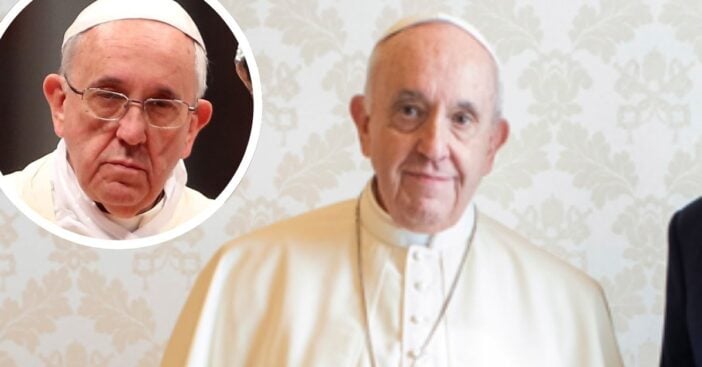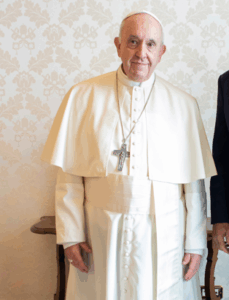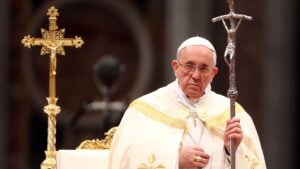
- On April 21, Pope Francis died.
- By time of writing, no cause of death has been announced, but Pope Francis had a documented history of chronic lung disease.
- Pope Francis was known as a revolutionary figure in the Catholic church.
On Easter Monday, the Vatican announced the death of Pope Francis. “Dearest brothers and sisters, with deep sorrow I must announce the death of our Holy Father Francis,” shared Cardinal Kevin Farrell, Camerlengo of the Apostolic Chamber. “At 7:35 this morning, the Bishop of Rome, Francis, returned to the house of the Father.”
Known around the world for his humility, compassion, and progressive views, Pope Francis was the first pope from the Americas, the first Jesuit pope, and the first to take the name Francis—an homage to St. Francis of Assisi and his devotion to the poor. His papacy was marked by efforts to modernize the Catholic Church and extend its reach to those who had long felt forgotten or excluded. He became a global figure not only as a religious leader but also as a moral voice in matters of climate change, migration, and economic justice.
From Buenos Aires to the seminary: a humble beginning rooted in faith

Born Jorge Mario Bergoglio on December 17, 1936, in Buenos Aires, Argentina, he was the son of Italian immigrants and grew up in a working-class neighborhood. He originally trained as a chemical technician before feeling called to the priesthood, entering the Society of Jesus in 1958. His Jesuit formation emphasized intellectual rigor and social justice, themes that would define his later ministry.
Bergoglio rose through the ranks of the Church in Argentina, earning a reputation as a humble, approachable leader with a deep concern for the poor and marginalized. He was named Archbishop of Buenos Aires in 1998 and elevated to cardinal by Pope John Paul II in 2001. Throughout political upheaval and economic crises in Argentina, he maintained a pastoral presence that prioritized service over status.
Champion of the marginalized, architect of a modern church

When he was elected pope in March 2013 following the resignation of Pope Benedict XVI, it was a moment that signaled a profound shift in tone and focus for the Vatican. Pope Francis quickly set himself apart with symbolic gestures—eschewing the papal palace for a modest guesthouse, choosing simpler vestments, and washing the feet of prisoners and refugees. His encyclicals, such as Laudato si’ on the environment and Fratelli tutti on fraternity and social friendship, reflected his desire to address global issues through the lens of faith.
His papacy was not without controversy, as he attempted to balance doctrinal tradition with a more inclusive and merciful approach to contemporary issues such as LGBTQ rights, divorce, and interfaith dialogue. While some praised his vision of a more open and listening church, others within the hierarchy resisted his reforms. Yet through it all, Pope Francis remained committed to building what he often called a “Church of the poor, for the poor.”
Whether delivering Mass in a remote village, speaking to world leaders, or comforting the grieving, Pope Francis embodied a pastoral leadership that resonated far beyond the pews. He redefined what it meant to be pope in the 21st century—not as a distant authority but as a shepherd walking among his flock. His legacy is one of bridge-building, humility, and a relentless pursuit of mercy in a fractured world.

